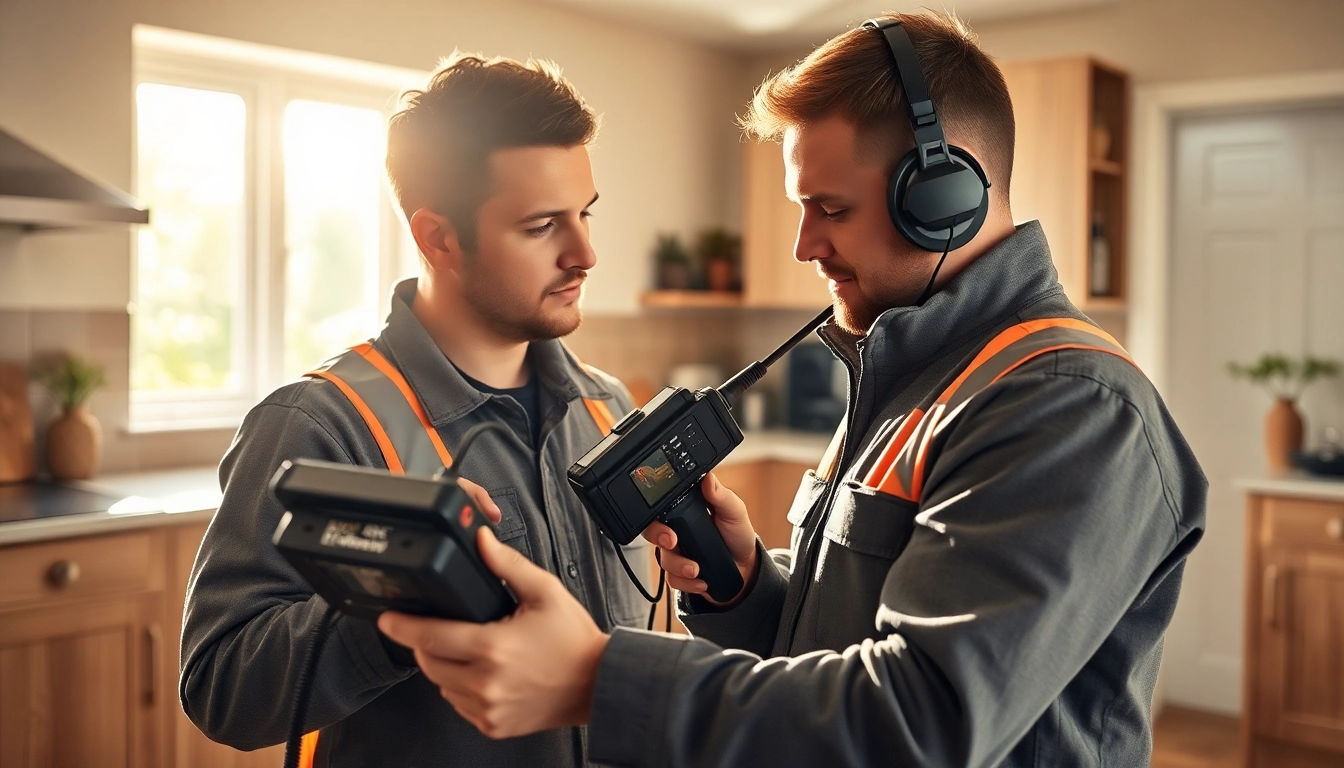Understanding Leak Detection Cornwall
Water leakage can have significant implications for properties in Cornwall, leading to structural damage, increased utility bills, and a host of potential health hazards. Understanding the nuances of leak detection is vital for homeowners and property managers alike. This article delves deep into the essentials of leak detection in Cornwall, addressing what it is, why it matters, and how you can stay informed about potential issues. If you’re a homeowner in this beautiful region, knowing more about Leak Detection Cornwall can prove invaluable.
What is Leak Detection and Why it Matters
Leak detection refers to the systematic process of identifying unwanted water flow in any part of a property. This can include hidden leaks in walls, ceilings, and floors that may go unnoticed until significant damage has occurred. The importance of leak detection should not be understated. Early identification allows for repairs before water damage becomes extensive and costly, potentially saving homeowners thousands of pounds in repairs and increasing the longevity of plumbing systems.
Common Types of Leaks Found in Cornwall Homes
Several types of leaks are commonly found in homes across Cornwall:
- Piping Leaks: These occur due to corrosion, improper installation, or extreme weather conditions.
- Roof Leaks: Often seen in Cornwall’s coastal environment, where heavy rainfall can lead to wear and tear.
- Slab Leaks: Leakage under concrete foundations is a significant concern and can lead to severe structural damage.
- Appliance Leaks: Washing machines, dishwashers, and refrigerators can develop leaks that may not be immediately apparent.
- Basement and Foundation Leaks: Common in properties with inadequate drainage systems, leading to flooding and mold issues.
Signs Your Home May Have a Leak
Detecting leaks early can prevent costly repairs and maintain the integrity of your home. Look for these signs:
- Sudden increases in water bills.
- Visible mold or mildew, especially near pipes and fixtures.
- Wet spots on walls, ceilings, and floors.
- Unexplained dampness in basements or crawl spaces.
- Unusual sounds of running water when all taps are off.
Technologies Used in Leak Detection Cornwall
Advanced Equipment for Accurate Leak Location
Modern leak detection employs several advanced technologies to accurately locate and diagnose leaks:
- Electronic Leak Detection: Utilizes sensitivity to detect changes in pressure or electricity flow that indicate a leak.
- Infrared Thermography: This method uses thermal imaging cameras to identify temperature differences that signal hidden leaks.
- Moisture Meters: Used to measure the moisture content within materials, helping to pinpoint the location and extent of leaks.
- Subsurface Detection Devices: These are crucial for locating underground leaks without disrupting the surface.
How Thermal Imaging Improves Detection Processes
Thermal imaging is a cutting-edge tool in leak detection that provides a visual representation of temperature changes in materials. It is particularly effective in identifying leaks behind walls and under floors, where traditional methods may fail. By capturing infrared images, professionals can locate water leaks even in inaccessible spots, allowing for efficient repairs and significantly reducing destructive search methods.
Acoustic Leak Detection Techniques Explained
Acoustic methods rely on sound to detect leaks. This technique works by listening for the sound of water escaping through a small crack or hole. Trained professionals utilize sensitive microphones to amplify these sounds, allowing them to pinpoint the exact location of leaks, sometimes several meters underground or behind walls. This approach is non-invasive and can save homeowners from unnecessary repairs to their property.
DIY Leak Detection Cornwall: A Homeowner’s Guide
Simple Methods to Identify Leaks
Homeowners can take proactive steps to identify leaks before they require professional intervention. Here are several methods to conduct a preliminary investigation:
- Monitor your water bill for unusual increases.
- Inspect your water meter. Take a reading before and after a period of non-use; if it changes, you have a leak.
- Conduct a dye test in toilets by adding a few drops of food coloring into the tank. If the color appears in the bowl within 30 minutes without flushing, there’s a leak.
- Check visible pipes for any signs of moisture or corrosion.
Common Tools for Leak Detection at Home
While your senses and intuition are helpful, having the right tools can greatly assist in detecting leaks:
- Moisture Meter: For measuring moisture in walls and ceilings.
- Water Leak Detection Sensors: These battery-operated devices can alert you to leaks by sounding an alarm.
- Dye Tablets: Great for testing toilets and drains without extensive work.
When to Call a Professional for Help
While DIY methods can be effective, certain situations warrant professional assistance:
- If the leak is significant or leads to substantial water damage.
- When you suspect leaks behind walls or underground.
- In cases where you’re unsure of the best approach to take.
The Importance of Regular Leak Inspections in Cornwall
How Frequent Inspections Can Save You Money
Regular inspections can be a game changer for homeowners. By making leak detection part of a routine home maintenance checklist, homeowners can catch issues early, which mitigates repair costs significantly. This proactive approach not only protects financial interests but also enhances peace of mind.
Understanding the Link Between Leaks and Property Damage
Ignoring leaks can lead to severe ramifications. Water damage can lead to structural problems, the development of mold, and a decrease in property value. Continuous moisture promotes pest infestations as well. Understanding these links emphasizes the need for regular inspections and maintaining plumbing systems effectively.
Best Practices for Home Maintenance Against Leaks
Maintaining a home in Cornwall involves specific practices to help prevent leaks:
- Regularly check roofs and gutters for clogs or damage.
- Inspect around fixtures regularly.
- Keep basement areas dry and well-ventilated.
- Test plumbing lines and sprinkler systems seasonally.
- Ensure proper drainage away from the foundation of the home.
Choosing the Right Leak Detection Services in Cornwall
What to Look for in a Leak Detection Expert
Choosing a qualified leak detection service is crucial for effective workmanship. Look for these characteristics:
- Experience in the field and a solid reputation in the community.
- Utilization of advanced technologies for leak identification.
- Formal certification or licensing that demonstrates expertise.
- Positive reviews and testimonials from previous clients.
Benefits of Professional Leak Detection Services
Hiring professionals offers numerous advantages:
- Accurate identification of leaks, often without necessitating invasive exploration.
- In-depth analysis and recommendations for repairs and maintenance.
- Utility bill savings through leak remediation.
- Professional standards ensured with warranties on services provided.
Questions to Ask Before Hiring a Leak Detection Specialist
To maximize your investment in leak detection services, consider asking the following:
- What technologies do you utilize?
- Can you provide references from previous clients?
- What is your process for identifying and resolving leaks?
- Are your services guaranteed?




